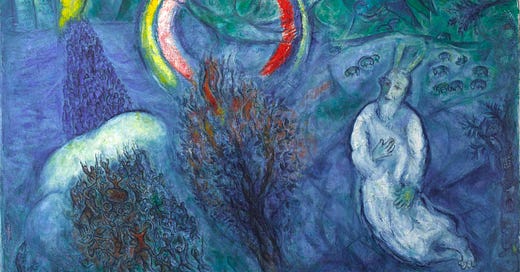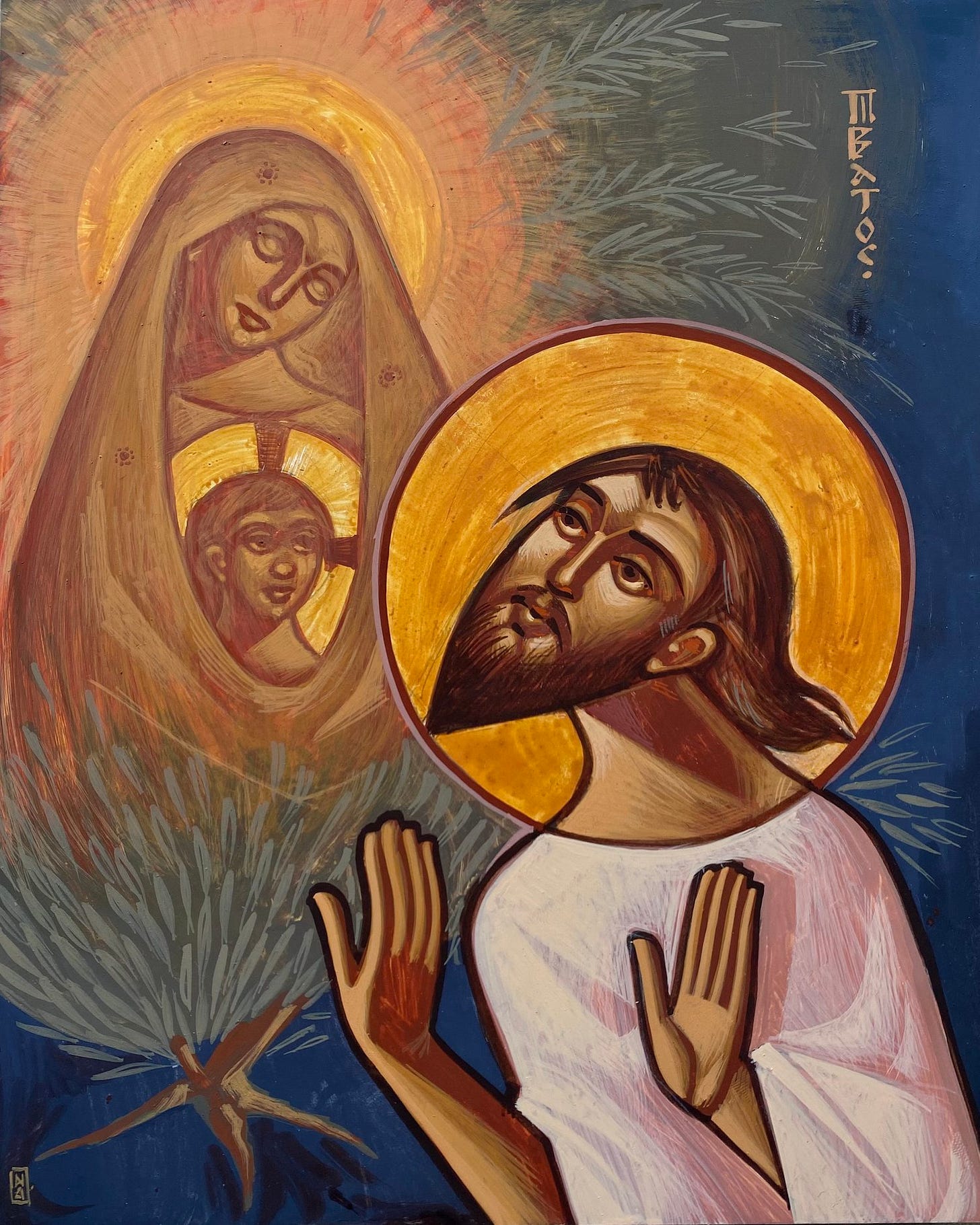Exodus 3.1-15
It is perhaps not immediately obvious that this Sunday’s Old Testament lectionary text, in which the Maker of heaven and earth encounters Moses at the burning bush, displays an instance of the doctrine of the Trinity.
Scripture knows no other instantiations of its doctrines than the kind we find in Exodus 3. That we do not so see the story of the burning bush as an icon of the Trinity simply reveals the extent to which the church has accepted modernity’s limitations on the formulations of doctrine.
Typically, the church attempts to justify its dogma by conceding that the Trinity is not itself displayed by the Bible but that the conclusions of the church’s creedal councils are nevertheless the legitimate development of claims that are in the Bible. This concession is incorrect. The doctrine of the Trinity is not only, “in the appropriate fashion,” displayed in the Bible but it is so most especially in what Christians will deem the most unlikely place, the Old Testament.
If we pose the doctrine of the Trinity as a propositional truth claim, set forth in rational terms and stripped down to the barest of logic, then, of course, the Trinity is not in the Bible. But such formulations are antithetical to the character of scripture.
Scripture— for the church—is narrative.
Both the early church and rabbinic Judaism added a second volume to the scriptures which initially were the sole authority for both communities. To the Old, the church added the New Testament. To the Hebrew Bible, the rabbis added the Mishna. The former is primarily narrative (the Gospels) with occasional commentary upon those narratives (the Epistles) while the latter is Israel’s tradition or oral Torah. Because of the narrative form of the New Testament, the church has read its entire scriptures as story. Because of the form of the Mishna, rabbinic Judaism reads the Tanakh as law.
For Christians then, scripture hangs together as a single story of God’s history with his people, from the Beginning to Fulfillment. Now, if scripture is fundamentally narrative in genre, the church must abandon modernity’s prejudices about the propositional character of doctrine. The Bible largely avoids revealing the true God through truth claims like “God is merciful” or “The Lord is loving.” Rather than such rational assertions, the form of scripture begs the question, “How would a story display the reality of God?” How could a story show that God is loving or merciful without asserting that he is such and such?
Just so, how would a narrative reveal that God is three persons?
From the very beginning, the Father and the Spirit are straightforwardly two dramatis personae in the Old Testament, but what of the third person? “The Son’s presentation in the Old Testament,” Robert Jenson writes, “is even more clearly a matter of a plot-structure displayed both by the Old Testament’s total narrative, and by many of its individual incidents.”
For example, look again to Sunday’s lectionary story. Take note how the story, much like the Akedah in the Genesis 22, displays the reality of God.
It’s the angel of the LORD who first summons Moses to the burning bush: “There the angel of the LORD appeared to him in a flame of fire out of a bush (verse 2).
But the angel of the LORD next self-identifies as none other than the LORD: “When the LORD saw that he had turned aside to see, God called to him out of the bush, "Moses, Moses!” (verse 4.
Finally, it turns out, the LORD has called Moses to the burning bush precisely to identify which God he is and to reveal to Moses his personal name: “I am the God of your father, the God of Abraham, the God of Isaac, and the God of Jacob…I AM WHO I AM. He said further, "Thus you shall say to the Israelites, 'I AM has sent me to you”” (verses 6-14).
The encounter at the burning busy demands a question:
Is the angel of the LORD simply the same one as the LORD?
Or, is the angel of the LORD an identity different from the LORD in the LORD’S own identity?
Certainly, the answer must be that he is both.
Keep reading with a 7-day free trial
Subscribe to Tamed Cynic to keep reading this post and get 7 days of free access to the full post archives.





